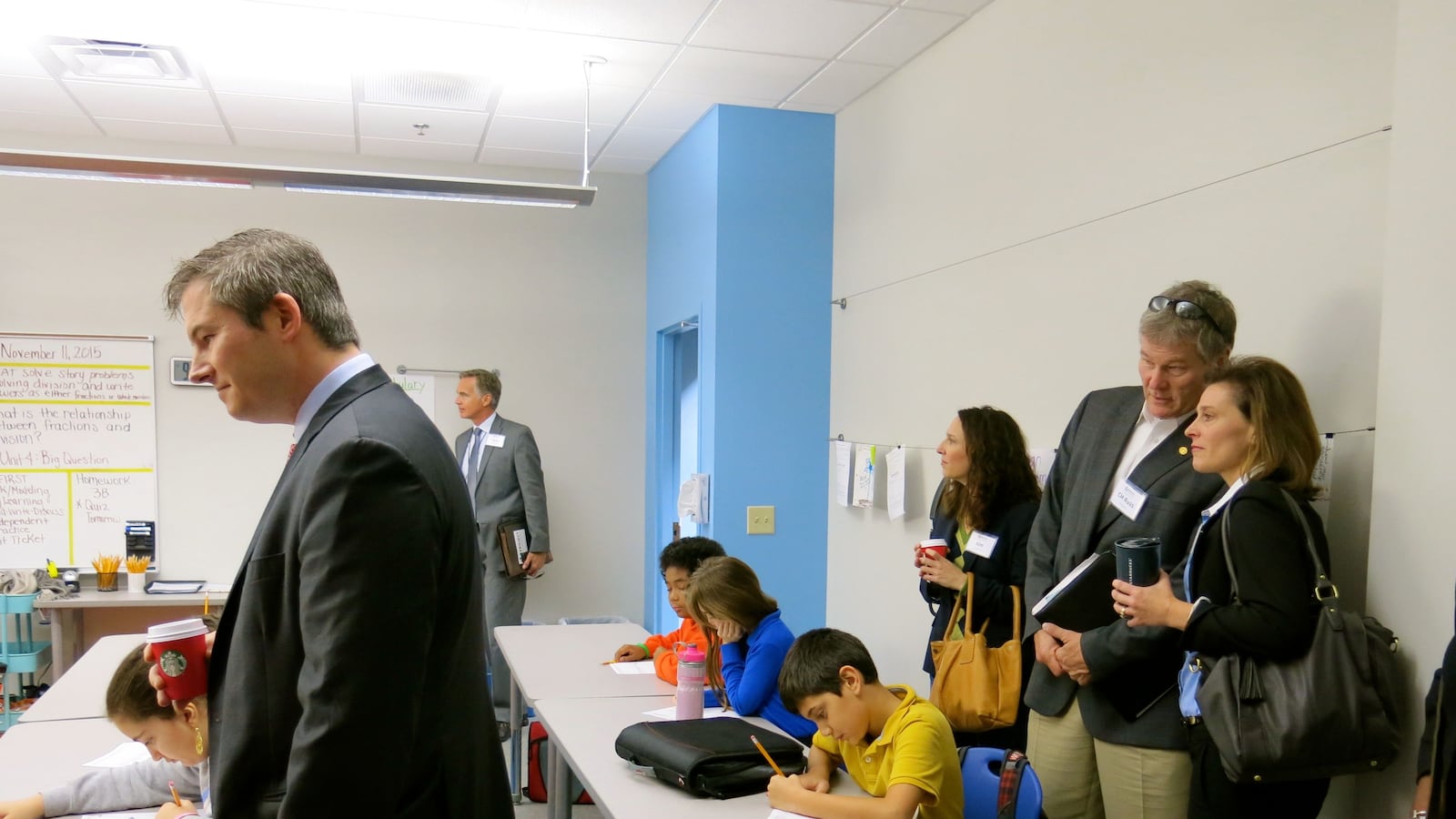Valor Collegiate Academies and Crieve Hall Elementary School might be on opposite sides of one fault line in Nashville’s education debates, but they are similar in many ways.
Nashville’s school board increasingly opposes privately managed charter schools such as Valor Collegiate, a pair of brand-new schools on Nolensville Pike that chooses students randomly from those who apply. Instead, board members favor schools run by the district, such as Crieve Hall, a 60-year-old school in a leafy neighborhood three miles away that accepts all students who live in its designated zone.
But the schools both have unusually diverse student populations — with a mix of white, Hispanic, and Arab students, of whom about half come from poor families — and some of the highest test scores in Nashville.
So when Karl Dean, who until recently was Nashville’s mayor, decided to launch his new education advocacy organization this week with a series of school tours, Valor and Crieve were the first stops.
The bimonthly tours that Project Renaissance is planning will each visit one district-run school and one charter school. The group’s leaders say the arrangement is meant to help Nashville take a step back from the debate over charter schools that has embroiled its school board for three years, and instead focus on increasing quality in all schools.
“We really just want to highlight the great things that are happening at these schools, and have conversations about what it is that’s working,” said co-CEO Wendy Tucker.
It’s a tried-and-true strategy for education advocates, especially ones who favor charter schools, who want to shift debates away from how schools are run. A nonprofit in New York City organized study tours and training sessions for teachers from both charter and district schools, although the frequency of events has fallen as tensions between the two sectors in that city has grown.

The idea of erasing divisions could be a hard sell for local critics of charter schools, which are publicly funded but privately operated. Dean made charter schools a priority during his tenure, and the CEOs he selected for Project Renaissance also have charter school credentials: Co-CEO Justin Testerman is the former head of the Tennessee Charter School Center, and Tucker, who was Dean’s education advisor, is also a member of the State Board of Education, which recently told Nashville it must add two more charter schools that it initially rejected.
The first tour, held Wednesday, contained not a whiff a conflict. It drew about 40 people — including Dean; Vice Mayor David Briley; Democratic State Sen. Jeff Yarbro; and Chris Henson, the interim superintendent of Metropolitan Nashville Public Schools — to observe classes at both schools and a presentation by both principals about how they would explain their schools’ successes.
At the end of the tour, the school leaders sat in the library of Crieve Hall, and talked about what their schools have in common. They didn’t swap tips, but they talked about what they both do that other schools could emulate.
Both schools have morning meetings with their students, where students and teachers check in about their overall well-being and develop close relationships.
Both provide teachers time for collaboration. And both recruit heavily from student teachers who have worked at the school for a year, so they can ensure that they add new teachers who are up for the job. (“A year-long interview,” Valor CEO Todd Dickson called it.)
And both said their schools’ diversity was an asset for students. Diversity is a core tenet of Valor’s model, while Crieve Hall’s zone includes residential areas that are mixed in terms of income and ethnicity.
“It helps to have good models for students,” said Crieve Hall principal Linda Mickle. “For students who are still learning English, to be sitting next to someone’s fluent is huge.”
Such balanced students bodies are hard to come by in a district where nearly three quarters of students come from low-income families, and where many neighborhoods are segregated by race and income.
Testerman said future tours will also highlight schools that are able to succeed with almost exclusively low-income populations, which is the norm for many of the city’s schools.
“We want to make sure that we are recognizing excellence across the sectors and the city, and see what they can learn from each other,” he said.

